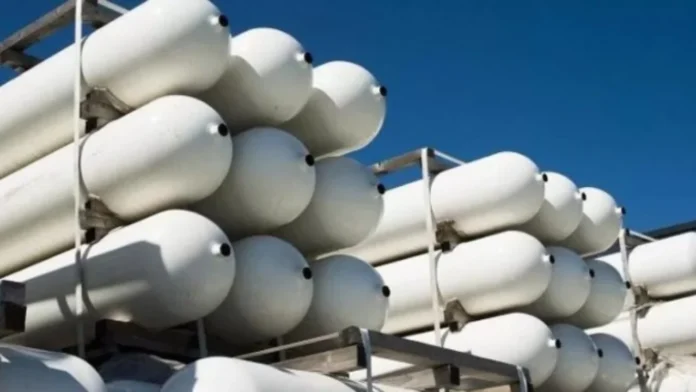Renaissance Capital Africa, in its latest report has said that Nigeria would require between $17 billion and $29.3 billion to support its gas transition programme.
The company, a financial-services firm focused on investment banking and markets activities in Africa, said that to support the progressive policy developments under implementation, infrastructure has been identified as a potential gap in the system, especially for the gas transition.
The report suggests that Nigeria should lay out significant amount of funds for oil evacuation infrastructure for export and local refining.
Although, Nigeria is pursuing fiscal reforms to energise oil and gas sector, the new report has identified an absence of critical infrastructure especially in the country’s gas development sector.
The firm arrived at its projection by factoring in the Dangote refinery and crude oil evacuation infrastructure potentials.
“We estimated a capital expenditure of $17.3 to $29.3 billion, excluding Dangote Refinery & Petrochemicals which has been completed, to support gas transition. Crude oil evacuation infrastructure for export and local refining is better placed for near term returns in our view,” it stated.
However, the report said that infrastructure developments are more complex because scattered reserves in the country require more infrastructure, increasing the upfront cost for evacuation. Besides, it stated that domestic manufacturing demand is currently low, stressing that without the demand side initiatives, gas will be channeled for export.
As for incentives for IOCs and local E&P companies to unlock value in gas production, it said that cost efficiency, shorter cash conversion circle, among others, remain key positives for the country.
“With economies of scale in existing fields, existing infrastructure can be repurposed for gas at a lower cost versus procuring new equipment for additional crude exploration, making it cheaper for existing E&Ps to process and sell CNG/LNG.
“Also, there’s a shorter cash conversion cycle from investing in gas processing on existing fields versus exploration. Funding interest is more inclined towards gas projects (and) increased government focus leading to policy changes and the expansion of use cases for domestic gas utilisation including power generation and manufacturing,” it added.
On the recent divestments in the oil sector, Renaissance Capital said the potential outcome of the acquisition by the indigenous players includes bankable projects for investors and local commercial banks, community development, and increasing capex for asset growth.
It stated that for additional context on asset growth where NNPC is the majority JV partner, its E&P partners are now up to date on its cash calls, in part due to the removal of subsidies and improved governance at NNPC.
“Looking ahead, we anticipate further divestments by IOCs and NNPC JVs, where we see a significant opportunity for local E&P players to acquire 10 oil wells holding 2,008 mmboe,” Rencap stated.
The outlook for Nigeria’s oil and gas sector, it said, remains broadly positive, supported by a combination of structural reforms, renewed investment momentum, and the gradual rebalancing of asset ownership.
“The ongoing divestment of onshore and shallow-water assets by international oil companies (IOCs) to indigenous players is reshaping the upstream landscape, transferring productive capacity to operators with a stronger local presence and operational agility.
“As these transactions conclude and capital commitments crystallise, production from previously underutilised fields is expected to recover, underpinning a steady improvement in output volumes.
“At the same time, the renewed focus on offshore developments, particularly in deepwater fields signals a potential second wave of upstream investment. With the Petroleum Industry Act (PIA) now providing fiscal clarity and more competitive terms, several long-stalled projects, including deepwater expansions and infill drilling campaigns, are being revisited.
“The steady rise in active rig counts above 40 units since mid-2025 reinforces this trend, reflecting both renewed investor confidence and a tangible pickup in drilling activity across multiple terrains,” it stated.
In the midstream segment, it stated that the commissioning of the Dangote Refinery marks a structural inflection point. Through the implementation of the Domestic Crude Supply Obligation (DCSO), the refinery, it said, is expected to secure steady feedstock supply, enabling Nigeria to significantly reduce its dependence on imported refined products.
Increased domestic refining capacity, coupled with improved pipeline and gas infrastructure is expected to enhance energy security, stabilise supply chains, and create fiscal savings through reduced import costs.
Although global oil prices are projected to soften in the medium term due to moderating demand and higher non-OPEC supply amidst geopolitical tensions, Nigeria’s rising production levels and enhanced operational efficiency, it pointed out, are likely to act as a buffer against price volatility.
“Furthermore, the shift toward gas development both for domestic power generation and export diversification offers an additional avenue for earnings resilience.
“Taken together, these dynamics suggest a more balanced and resilient oil and gas sector, with local participation deepening, midstream capacity expanding, and regulatory clarity under the PIA reinforcing investor confidence. Sustained execution on these fronts could position Nigeria’s petroleum industry for a gradual but durable recovery in both output and value creation,” the company added.
Besides, the report said that the trajectory of active rig count signals that the building blocks for growth are being put in place.
“If maintained, this upward trend in drilling activity provides a credible pathway for Nigeria to not only meet but potentially exceed medium-term production targets (over 2mbpd by FY26e), reinforcing the narrative of a recovering and investable oil and gas sector”, it said.

